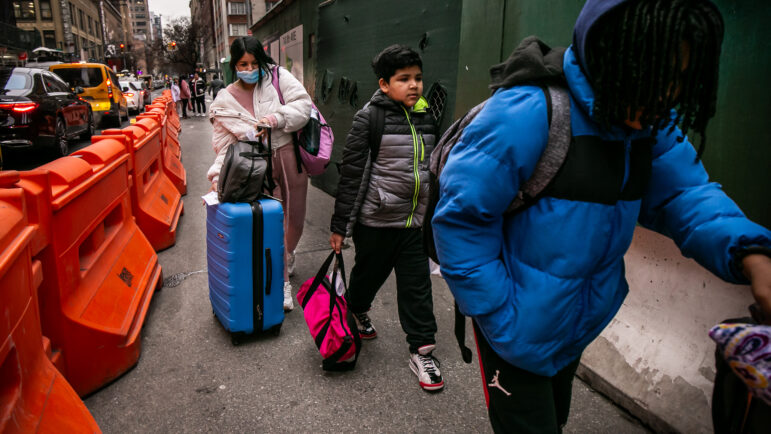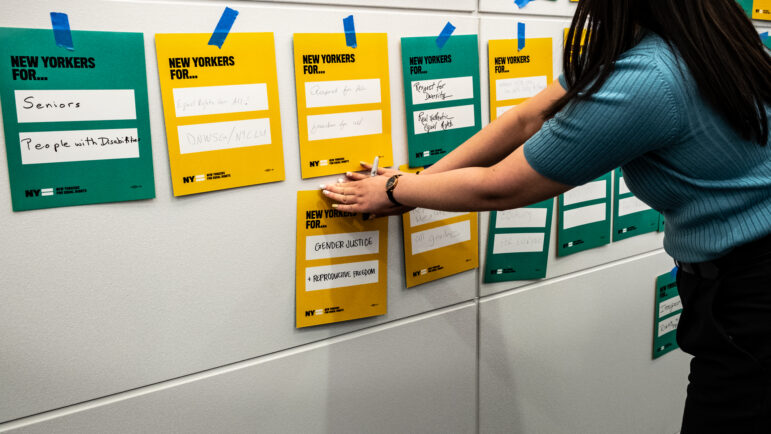Sometime cab driver and full-time taxicab industry spokesperson Michael Higgins would still be paying $1,200 a month to independently produce his show, “Taxi Talk,” on leased-access TV if it weren’t for New York City’s public-access TV franchise agreements.
With public access, “I can use high-end equipment to shoot and edit the show and air it for free,” said Higgins. For more than 20 years, franchise agreements between cable TV providers and the localities in which they operate have stipulated that a certain percentage of funds be put aside for public, educational or governmental (PEG) access channels.
In the city it means that Bronxnet, Queens Public Television, Staten Island Community Television, Brooklyn Community Access Television and Manhattan Neighborhood Network (MNN) can air shows made by residents and provide production training for these producers through public access centers. “This way the shades of gray can have their own show as well as the left and right media,” said Higgins, whose show airs on MNN’s channel 34. “It’s a niche you can scratch.”
Today’s media marketplace often leaves creators of this kind of television feeling threatened, so MNN took time out at its midtown studios recently to celebrate some political victories that should keep its niche protected for at least a little while. In September, City Council voted to require cable providers operating in the city to carry and support public access television as a condition of doing business in the five boroughs.
Representatives of Verizon, the newest entrant to the city’s cable scene, testified before Council members, who required the company to accommodate PEG TV channels in accordance with franchise agreements already in place with Time Warner and RCN, the city’s current cable providers.
MNN Executive Director Dan Coughlin called the network’s year-and-a-half-long campaign to fight a variety of attacks “a Herculean effort” and said it appears that federal legislation that also would have changed the way the Internet operates (violating “net neutrality”) is dead in Congress – at least for now. (See Signal Interference: Feds Retool City Public Access TV Structure”, City Limits Weekly #542, July 3, 2006.)
MNN’s effort also led to a more general statement of support by Council for PEG TV back in the spring, in which it stated opposition to the federal legislation – an overhaul of the Telecommunications Act of 1996 called the COPE bill.
Looking forward, over the next 16 months, MNN will be working to switch its systems from analog to digital and to introduce the most up-to-date technology in their public access centers and to the public. “It’s still not accessible to folks, especially in low-income, immigrant communities,” Yu said. “People need affordable hardware” for Internet services, she said. The network also is preparing for the upcoming franchise agreement renewal in 2008, when the current agreements expire.
PEG TV “is an important thing for community development and education … and we can reach people on a street level,” said Michael Max Knobbe, executive director of Bronxnet. He mentioned that many producers get their training at Bronxnet and move into the mainstream TV and film industry. “It’s nice to see that there’s a growing interest in the training. Our classes are full,” he said. [11/13/06]








